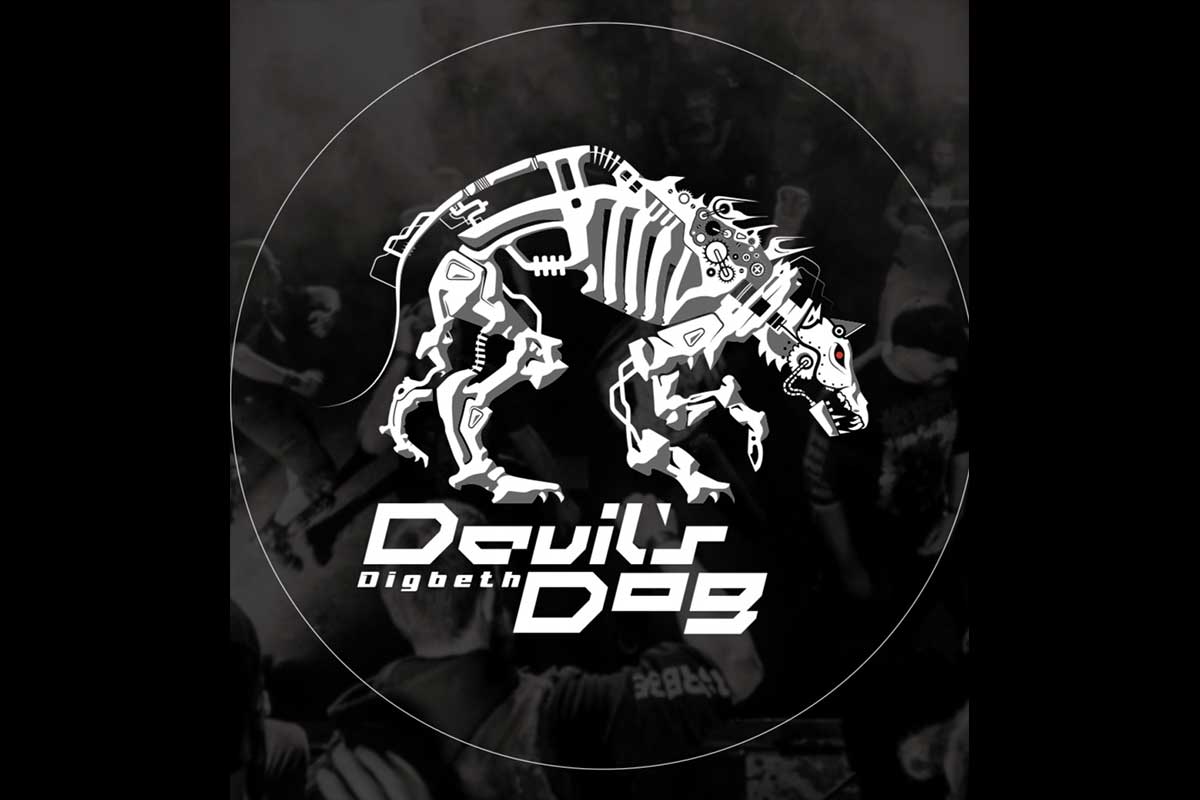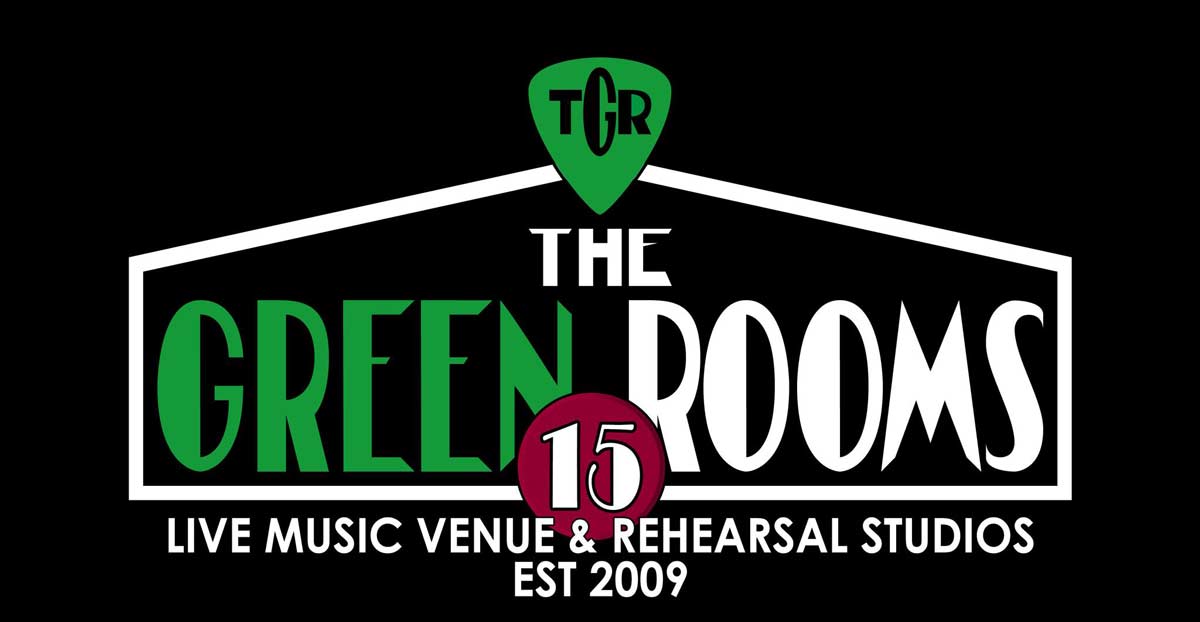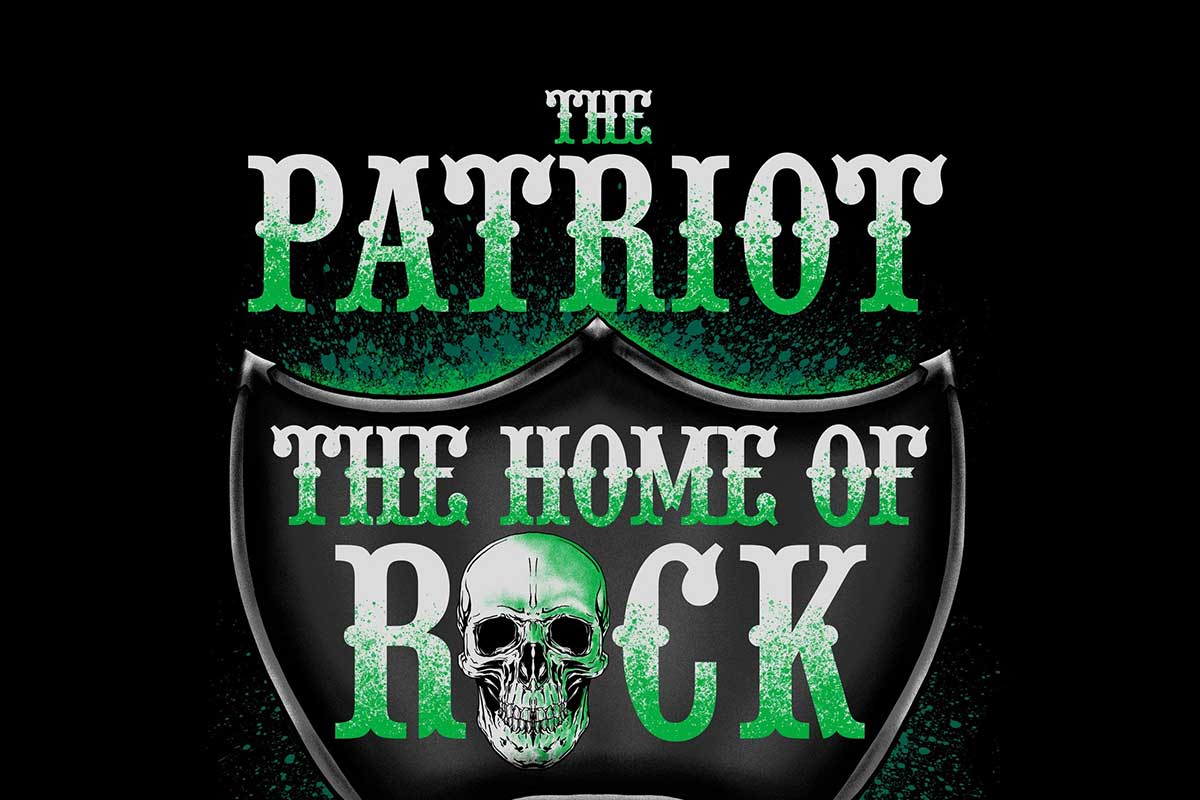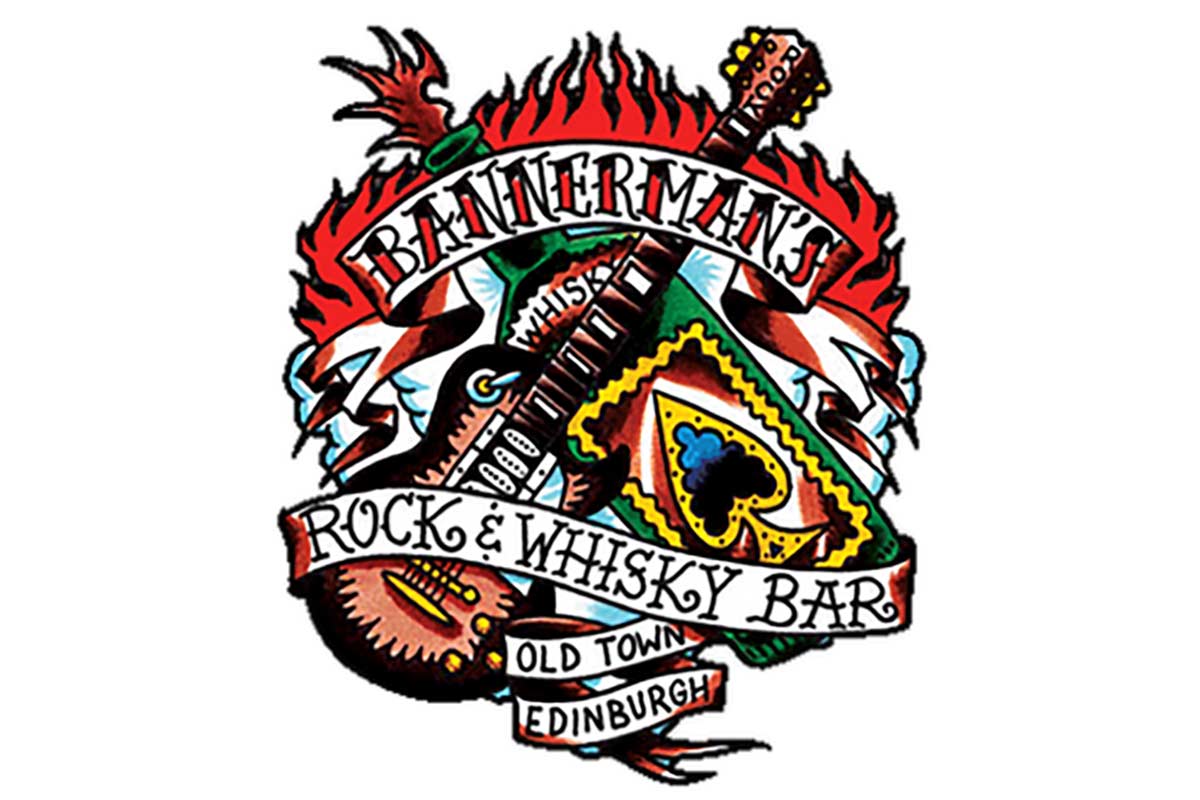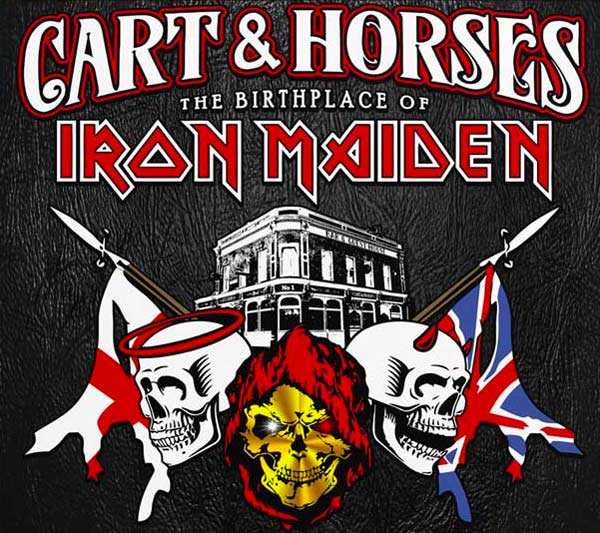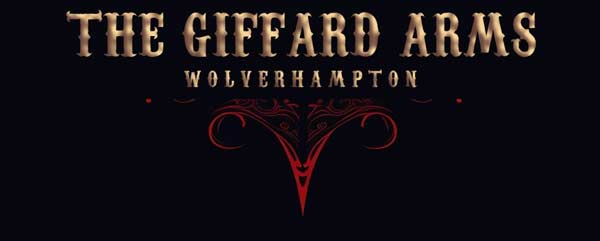
Festival season is upon us and with so many great European Metal Festivals this year I’m sure some of you are thinking of popping out to one or two?

Sweden Rock Festival
Maybe Sweden Rock Festival or the Italian Gods of Metal? Hellfest in France is good and the Wacken and Bang Your Head festivals in Germany are always great. In fact methinks our illustrious leader at Metaltalk, Steve Goldby, might be going to another good one this year, Graspop in Belgium.
One thing that sometimes puts folk off going over to Europe more often is trying to talk to the locals. Yes, I know we can always make ourselves understood in English. Them foreigners all understands us really, don’t they? We should just shout a bit louder surely?
Well no, actually. Have you ever noticed that when you’ve tried that tactic you’ve got spit in your burger, you’ve not pulled any local chicks/guys and most worryingly the bar’s closed early?
Yeah, that’s because you didn’t say “Bonjour”, which you knew how to say anyway but you didn’t actually do it.
Très bien! Well done! But let’s make this year’s festivals more fun.

These are French Girls. You should make the effort to say “Bonjour!” to them
This is how to learn a Western European language in one evening to a very basic level but a level nonetheless. If you follow this course in full you will get you by for a few days in that country and you never know, you might even make friends over there.
Celtic and Slavic languages aren’t so easy for the beginner and Hungarian, Finnish, Estonian, Albanian, Greek and Basque are impossible to all but the most patient of minds. So, being lazy we’re going to focus on the major Western European languages instead.
French, German, Spanish, Italian, Dutch (or Flemish), Swedish and Danish are easy to have a go at using this method. Other languages are trickier but can be done. You just might have to concentrate a bit more.
Steve Goldby is going to try this crash course to learn Flemish in time for Graspop as our guinea pig with you.

Our editor, your guinea pig, Steve Goldby
Six Things You Need
There are six things you’re going to need. Make sure you have them all before you start this course!
1. A phrasebook in the language you’re going to learn. A dictionary is handy too but we’ll get by with just the phrasebook most likely. Maybe have a browse through the phrasebook on the way home from the shops, that’ll help a bit. Showing some level of interest is going to pay dividends on this project.
2. A bottle of wine or four beers from the country that you are trying to learn the language of. On the way home from the shops try to read the label on them. I bet you can understand half of it already. No? Try harder, read it all again.

German Hefe Weizen Bier – all these are excellent but not all in one sitting!
3. A foreign film of your choice obviously made in the language that you’re trying to learn but with English subtitles. Don’t get one that’s dubbed into English, that won’t help. And don’t get a silent movie or a porn film, they don’t say much. If you like get a porn one as well (for extra vocab not usually included in your phrasebook) but primarily you need to focus on a proper story type film first.
4. A working pen and some paper, preferably a little notebook you can stick in your pocket and refer to later.
5. Absolute conviction in yourself that you do actually speak the language fluently and have done ever since you can remember. Confidence is a major pass/fail hurdle. You either do the speak the language or you don’t. You’re doubting yourself a bit but you’re wrong – you do actually speak it. Let’s go forward like that.
6. You’ll also need the patience to put up with my patronising tone, I basically don’t believe you will ever follow this through rigidly.
Ten Steps to Learn a Language
There are the ten stages of learning. You will only be required to actually learn anything in one of them. This course should all be done in one evening, preferably the night before you travel. Put aside a whole evening for this. You need to have no distractions and tolerant neighbours.
Step 1
OK, so firstly as we’ve accepted that we already speak the language, let’s remind ourselves of the words we know. We know at least ten words of that language already. Think about it and write them down.
You know, “Bonjour” means hello in French right? And you know therefore that “Bon” means good and “jour” means day. That’s three French words you know. You know “Grand Prix” means big prize. That’s five French words you’ve got. Think of another five without straining yourself.
You know “Fungi” means mushrooms on your Pizza in Italian. You know “Pizza” means that bready thing with tomatoes and cheese in Italian too. “Pasta” means well, pasta. “Penne” type pasta means pens, they look like fountain pen nibs and well, “Penne” just is pens. Hadn’t you worked that out?
“Farfalle” is butterflies, those little action man bow tie pastas. OK, you might not have known that but now you’ve got five Italian words… and you did know them all really.

Farfalle – Pasta Butterflies
Oh and butterfly in French is Papillion like the book with a picture of a Butterfly on. So now you’ve got six French words.
You might not think you need to know the word for butterflies in a language but in my experience it never hurts to know more. I was once thrust against my will into a German conversation about snails. Luckily and purely by chance I had overheard the word “Schnecken” a few days beforehand.
I have since found myself in three conversations on different occasions about snails with German speakers. What’s the chances of that?
You never know when any clue will rear its ugly head.
When you’re actually over there never turn your hearing off. Listen to those foreigners constantly. They will be your tutors, without knowing it, they’ll give loads of clues away all the time.
So going back to our ten words that we already know for each language…
If you’re learning Spanish think about everything Manuel said in Fawlty Towers (“Que?” means “what?”) or everything Clint Eastwood’s victims said before he blew holes in their guts (“Hola amigo” means “Hello, friend”).

Clint Eastwood- he probably killed more Spanish speakers on the big screen than any other actor in cinema history
If you’re learning German think about car adverts (you had worked out that a Volkswagon was a Folks Wagon, yes? There’s even more obvious stuff in there when you listen.
Oh, and Michael Schumacher’s family used to make shoes OK?
Really, you’ve got a lot more. Think about them for a while then make your list of ten words. Really write a list on the note paper you’ve got.
If you can’t think of ten after really trying hard, have a look on the labels of the bottles you bought. Can you see the word for water there? Or brewery? If you’ve got wine it’s probably saying the colour and maybe if its dry or sweet.
If you’re still really stuck peek in the phrasebook, then physically kick yourself really hard for not remembering the obvious. Then make a written list of ten.
If you can already count to ten in the language you’re going to speak tomorrow then your list now has twenty words. If you can’t already count to ten, then have a quick look at them in the phrasebook, remember the easy ones and forget the rest.
Oh look! All the words for one (1) start with a vowel followed by an N.
The words for two start with a T, Z (with a T sound) or D followed by a U or W then a vowel. It’s like ‘Countdown’.
The words for three start with a Th (as in our stupid language), T or D, followed by an R and a vowel. Who’d have thunk it, eh?
That’s right all these languages are related. We’re not actually doing anything very difficult here.
The other numbers follow similar patterns but let’s not worry about that too much, keep your drinks rounds short and sweet. The waiter can always give you change when you’re into multiple Euros over there.
Do bear in mind that you don’t have to know what they’re saying to keep up a conversation. That’s quite important to grasp.
You can keep up a conversation in a foreign language simply by saying the word “Really?” (“Vraiment?” in French, “Echt?” in German) every now and then until you catch a word or phrase that you do genuinely understand.
Don’t feel guilty, foreigners here do the same with us all the time. Never give up the pretence that you’d don’t actually speak their language. Self belief is going to win this game or lose it.
Step 2
I’m going to give you another bonus ten or twenty words that you already know. In English when we put “tion” at the end of a word, that word’s pretty much going to be the same in all the European languages but with slight variations on the “tion”.
For example in Italian they use “zioni” or “zione” instead so information is “informazioni”. In German they use “Informationen” the same in Swedish, in Portuguese its “informação” and in French its simply “information”. This also works for publication, defamation, multiplication and all sorts of useful words. But now you know them all anyway.

I wonder what all this Italian stuff says? Maybe it’s the Official Tourist Information? I wonder if we’re in the Province of Vicenza?
The same goes for words ending in “ology” or “ism”. They’re the same in most languages with regional variations. Have a look in your phrasebook and you’ll spot a few more.
How many words is that you’ve got now? Ten you knew before, plus basic counting, plus “tion”, “ology” and “ism” words, that got to be 30 at least?
Step 3
Now here’s ten really important words that are either exactly the same or at least understandable in every major Western European language. Sometimes they mumble them in a slightly different way but it really all makes sense if you immerse yourself in their mindset.
Toilet
Phone (or Telephone)
OK
Hamburger
Pizza
Wifi
Taxi
Hotel
Police
Ambulance
Have a look in your phrasebook. See what I mean? That’s good to know isn’t it? The really essential emergency ones are all made easy.

A Danish Ambulance, I think. I can’t really read Danish but I’m guessing its an ambulance.
Right that’s at least 40 words we’ve got now. Have you written them all down?
Step 4
Now you’re going to have to learn some stuff. I promise this is the only time you’ll have to do this. Have a look in the phrasebook for the words for:
Yes
No
Hello/Good day
How are you?
Please
Thank you
Goodnight
Where is…?
May I have a…?
Cheers/Good health!
That’s ten phrases though you may have known some before. Write them down.
The way to learn and practice them is reading the pronunciation notes in the front of the phrasebook. Try your best to emulate the noises they recommend. Even though they sound odd, trust the phrasebook. Practice this firstly by repeating the phrases, quietly but out loud while sitting down.
Then do it loudly while marching up and down the room. You literally must walk up and down your living room saying the phrase out loud, imagining you are greeting someone else marching the other way. “Bonjour, comment ça va?” you must shout to them in French.
Shouting is great practice. Do all ten, even if you knew them before.
Step 5
Sit down, that was exhausting. Now how many have you forgotten? Don’t worry about it. Never worry about any of this. Remember you already speak the language so it’s not a problem if you forget a word.
How was your accent? The trouble is we’ve been speaking this English language so long we’ve got comfortable with our style of mouth movements. Our style will not work in this new language that we suddenly speak. We must speak like them.
If I tell you to speak like them, you’ll speak half like them and half like you do already. So speak more like them than they do.
Speak French like Renee on ‘Allo ‘Allo, speak like the Swedish chef on the Muppets. say “Pasta just lika Mama usta make!” in an over the top fashion if you’re trying to learn Italian.
They do all actually speak like that over there.
Now march up and down the room practicing your ten phrases that you’ve learned shouting with an accent. Twice up and down the room for each phrase.
Did I mention you’d need peace and quiet for this? You’ve got like fifty words of the language now. And you’ve spotted a few similarities with English and other languages too haven’t you?
Haven’t you?
Oh come on, I told you to concentrate!

French Wines. Don’t get all of them! Choose one or two between friends.
Step 6
Have you not opened that wine yet? Sorry, I should have said to open it earlier. So go on, open it now or a beer. And read the label again, can you understand more? Write down the words you do understand. Someone might want a chat about yeast over there.
Now read the label out loud while marching up and down the room. Just do it. Then put the film on.
Step 7
The film’s great isn’t it? Out the window with Hollywood blockbusters from here on. I hope you’ve got something quite depressing, maybe in black and white?
Man Bites Dog- A Typically Cheery Belgian Movie
Listen to what they’re saying. They pronounce it all funny and fast don’t they? That’s what they do over there. We’ll have to watch out for that. Forewarned is forearmed.
But you can understand a bit here and there can’t you? The hello, yes and no? A bit more maybe? Draw a tick on your paper every time you understand a word. Do a big tick every time you understand an unexpected word.
How many ticks have you got at the end? If there’s less than twenty ticks you’ve either fallen asleep or watched the porn film first. I told you not to do that.
Step 8
Before we watch the film again we’d best have another glass. And we’d best look up the words for wine and beer in the phrasebook while we’re here, eh?
I told you I wouldn’t make you learn any more words didn’t I? I’m not making you learn these either.
Just have a look out of curiosity. You can also look up coffee if you want to too but I’m not going to force you.
Wine is “Wein”, “Vino” or something similar in all of them isn’t it? Of course it comes from the vine. We knew that anyway.
Coffee, Café, Kaffee are all pretty samey too.
Beer is one of four options.
Option 1- It’s Beer, Bier, Bière or Birra. This’ll work in English, German, Dutch, French and Italian. Easy right?
Option 2 – It’s Ceres, Cerveza or Cervassa in Latin languages such as Italian, Spanish, Catalan and Portuguese. That’s cos its made from cereal, right? Do note though they each pronounce it quite differently so have an extra look in the pronunciation section of the phrasebook.
Option 3 – It’s Øl in Scandinavian languages such as Swedish, Danish, Icelandic and Norwegian. That’s why we have Ale, those clever Vikings! While they were busy raping and pillaging our blessed islands, they left a really useful word behind.
Option 4- Most of the Eastern European Slavic languages call beer “Pivo”. But that’s not tricky is it? It sounds kind of fun to start with.
They all call Vodka, Gin and Whiskey the same things and Cola too which is handy. Brand names are brand names all over. And so are band names. You can literally have a conversation with a drunk German metal fan by looking at his t-shirt, reading the band logo on it and saying “Kiss! Ja, sehr gut! Ja!” over and over.
He’ll probably buy you a beer.
It might be worthwhile looking up the word for water, just in case. Now I’m asking you to learn another word and I said I wouldn’t do that. Sorry. Ignore it if you really want to.
Now’s probably a good time to set your alarm clock and pack your passport, toothbrush and change of socks if you’ve got an early flight tomorrow.
Step 9
OK, the film’s going on again. I know it might be painful but this time we’re in it!
Every time you see the character with the most ridiculous moustache you must greet him as an old friend, “Hallo! Hoe gaat het?” you’ll shout at him if you’re learning Dutch or Flemish. “Goed, bedankt” he’ll most likely return.

Two Typical European Actors- Edouard Baer and Gerard Depardieu
Then when we see the female with the most eyeliner pretend she’s your other best friend. All continental films feature characters with moustaches and too much make up don’t they?
Likewise when they go into a bar or restaurant in the film, you should order drinks and food too. Remember the “I would like a… please?” and “Thank you” bit we did earlier?
Join in the chit chat whenever the feeling takes you. Put more ticks on your bit of paper if it’ll make you feel better. Then go to bed. Remember you’ve got to get up early tomorrow!
Step 10
Now go to the country and read the phrasebook on the flight.
Then start speaking the language. Just do it. When their customs guy asks for your passport say “Hello” to him in his language. When he gives it back say “Thank you” in his language.
He will most likely ignore you.
That means you’ve blended in perfectly, he ignores everyone. You are now speaking the language to the people! You win!
Continue to do this.
Don’t back down when you fail a few times. Shit happens. Have no embarrassment on this topic. Who cares if some person you’ve never met thinks you have a limited mental age? What’s he to Hecuba or Hecuba to him?
Start the next conversation with the next stranger you meet completely afresh.
Here’s an example of the benefits of just giving it a go that I once had.
I was working as a roadie late at night on a gig in Italy. When we finally got back to the hotel after packing down the gig our English tour manager was there to tell us the bar had closed. The band all had drinks they’d ordered before but there was none for the thirsty crew. “Sorry guys, Cor blimey guvnor!” he said.

Venice- this is what Italy looks like
I wandered up to the bar where the bartender was packing down for the night with the lights off. I said “Ciao!” to him (we all know that don’t we? It kind of means hello and also goodbye in Italian).
“Come stai?” I said. That’s what the phrasebook said meant “How are you?”
The barman started telling me his life story in Italian. That was fine by me. I said “Non, certo?” (“No, really?”) every now and then.
It was a great chat. I think he was mostly saying something about how he had worked too many long shifts recently but I may be wrong. He could have been telling me about his unhealthy fetish for elephant dung for all I know really.
So then after a while of his banter I asked “Posso avere encora una bierra?”
“May I have…” is a super useful phrase on many occasions, see what the phasebook says.
“Posso avere”- (Is it) possi(ble to) ‘ave?
“Encora”- another, as in “Please come back and play Rock and Roll All Nite in the encore”.
“Una”, I think I mentioned that one (1) was going to start with a vowel and have an N sound in it? The Countdown game.
“Bierra”- err… that means beer.
None of this was rocket science.
Then he said “Quanto Birra?” Taking a wild guess, I reckoned “quanto” had something to do with quantity and I already knew that birra meant beer, so the answer had to be a mumbled “quarter” while holding up my thumb and three fingers to represent each of the four crew.
A useful point to note is that while most English speakers hold up fingers for one to four and only use their thumb for five when signalling, many Europeans start with the thumb and then count onto the fingers. Bear that in mind and it’s easier than learning loads of number words!
Of course the Italian word for four is not “quarter”. It is in fact “Quattro”, but I was in the ballpark and having a guess and giving it a go is the name if the game. The main point is he understood me and served us four beers.
This happened only because I tried to speak to him in Italian. I didn’t speak good Italian. I spoke just about passable Italian and that will honestly score you loads more points over there than shouting in English.
——-
NB None of this advice should be taken if you are trying to have a serious conversation in a second language. Do not sign legal documents, police statements, martial contracts or international weapons treaties based on learning a language overnight. The author and MetalTalk will not be held accountable for any injuries or time spent in foreign prisons that may arise from misunderstandings abroad.
Aside from that enjoy the festivals.

Wacken Open Air, Germany


